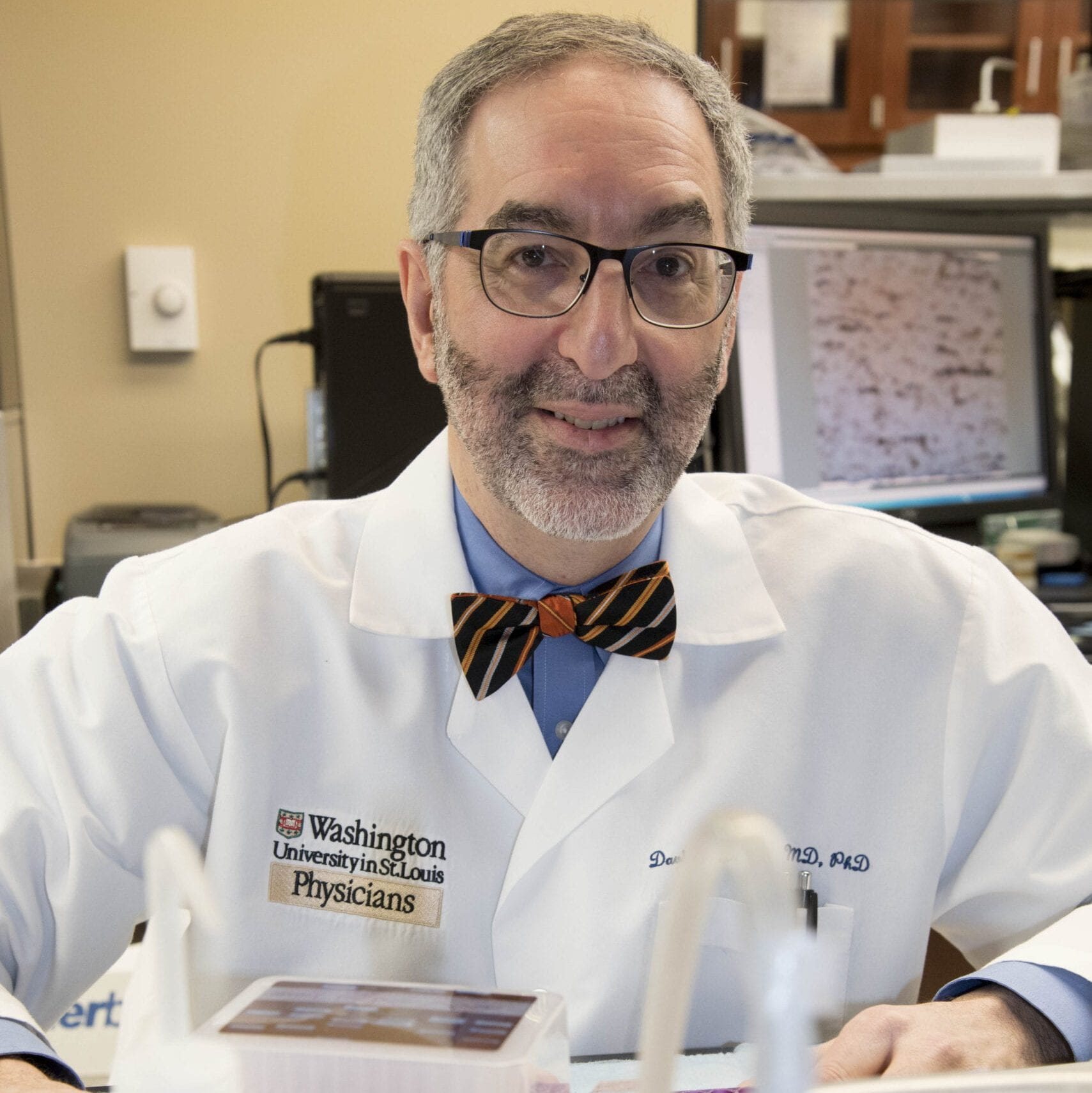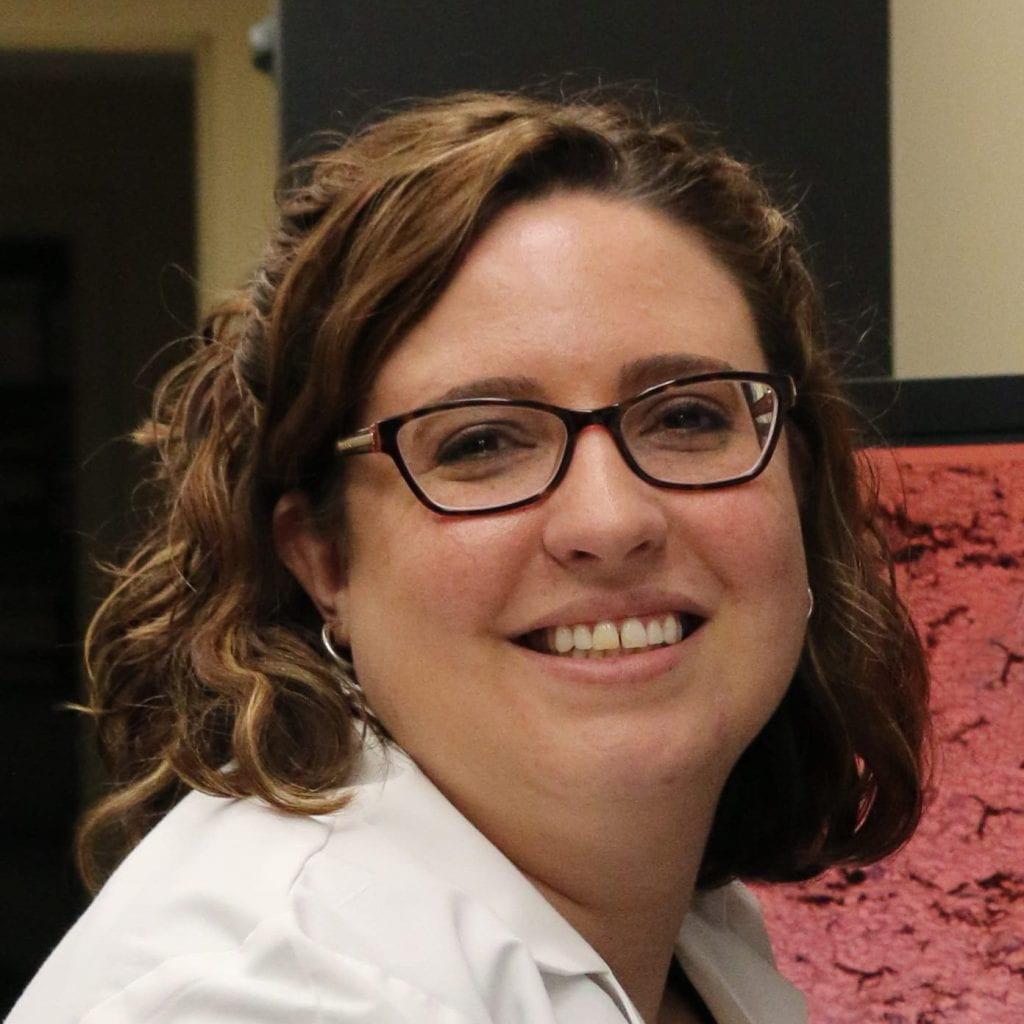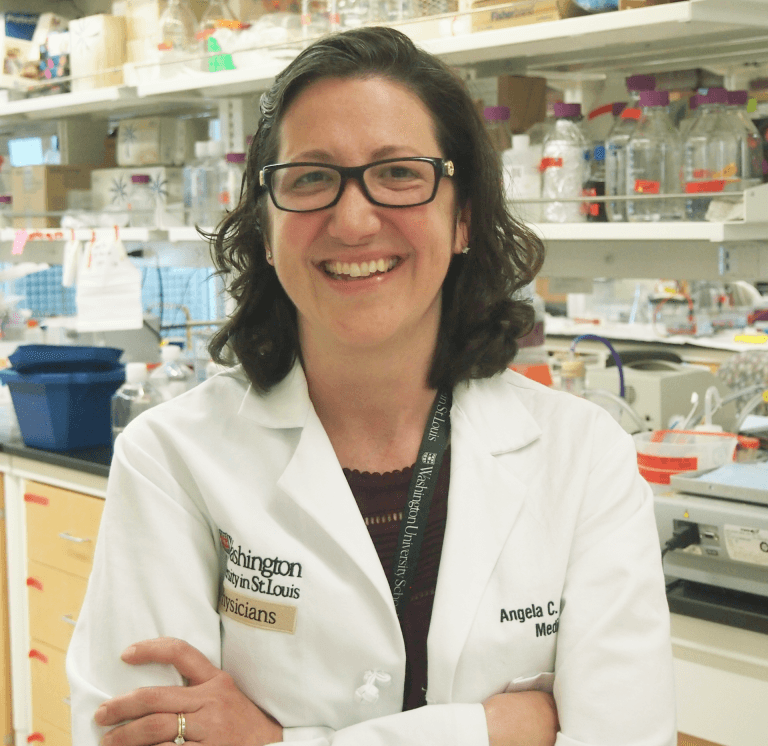Our laboratory researchers employ a diverse number of genetic, molecular, and cellular methods to understand how the NF genes function in health and how mutations in these genes lead to the development of nervous system abnormalities, such as brain tumors. Coupling these approaches with a unique collection of human biospecimens and small-animal models, ongoing studies are designed to discover the causes of the various medical problems that arise in people with NF. These, in turn, can be used to identify new treatments.
The Gutmann Laboratory

The Gutmann laboratory employs Neurofibromatosis type 1 (NF1) as a genetic platform to characterize the genomic, genetic, cellular, and molecular factors that contribute to the development of nervous system tumors (gliomas and neurofibromas), as well as brain development and behavioral deficits.
Our research team in the Gutmann Lab is comprised of researchers at all levels of training, including undergraduate students, post-baccalaureate students, medical students (MD), graduate students (PhD, MD-PhD), and postdoctoral investigators (PhD, MD-PhD), who bring their individual talents and expertise to the scientific problems being explored in our laboratory.
The Brossier Laboratory

Nicole Brossier, MD, PhD, is a practicing pediatric neuro-oncologist who focuses on treating children with brain and spinal tumors related to genetic disorders, including NF and Schwannomatosis. Her lab focuses on understanding the genetic, neurodevelopmental, and environmental factors that influence tumor development in the pediatric brain.
The Gupta Laboratory

Located within the Institute for Informatics, Dr. Aditi Gupta employs machine learning, artificial intelligence, and advanced bioinformatic strategies to provide more personalized information about the risk of specific medical complications in people with NF1.
The Hirbe Laboratory

As a practicing medical oncologist who treats sarcoma, Dr. Angela Hirbe’s research focuses on utilizing genomic information from sarcomas to understand the pathogenesis of these tumors better and identify biomarkers and therapeutic targets for these aggressive cancers. She launched her independent research career in 2016; since then, her laboratory has been dedicated to this work.
The Maloney Laboratory

In her lab, Dr. Susan Maloney investigates the impact of genetic and environmental liabilities for intellectual and developmental disorders (IDD) on neural circuit function. Their projects are targeted at understanding how IDD liabilities disrupt behavior with a focus on developmental trajectories, social motivation, sensory and motor function as they relate to core features of IDDs, and the roles in these functions of the serotonin, oxytocin, and opioid systems.
The Pan Laboratory

Located in the University of Texas MD Anderson Cancer Center, Dr. Yuan Pan’s laboratory leverages primary cell culture, neuromodulatory approaches, genetically engineered mouse models, and patient-derived xenograft models to study neuron-cancer and neuron-glial interactions. They aim to provide insights into predicting, preventing, and treating nervous system cancer and neurological disorders.